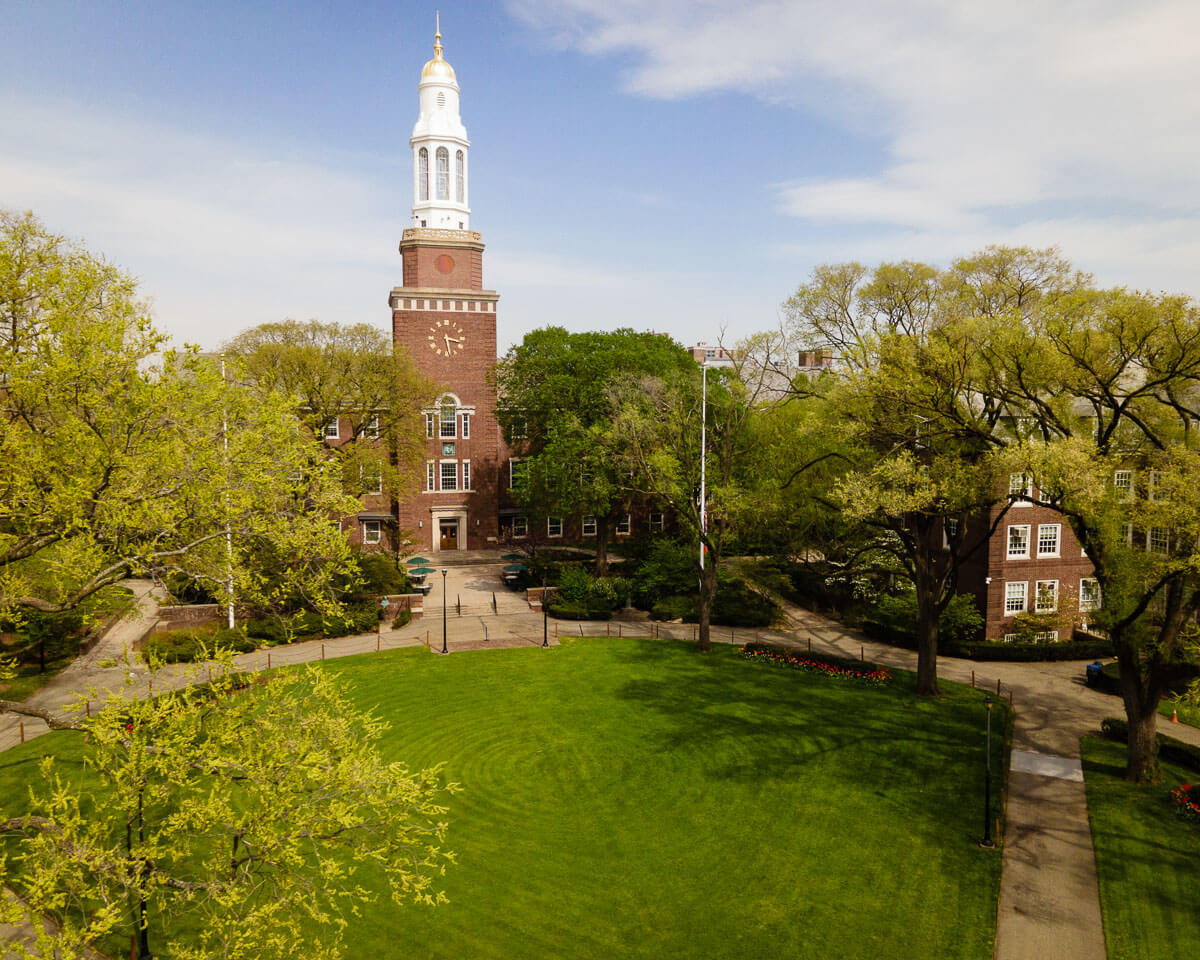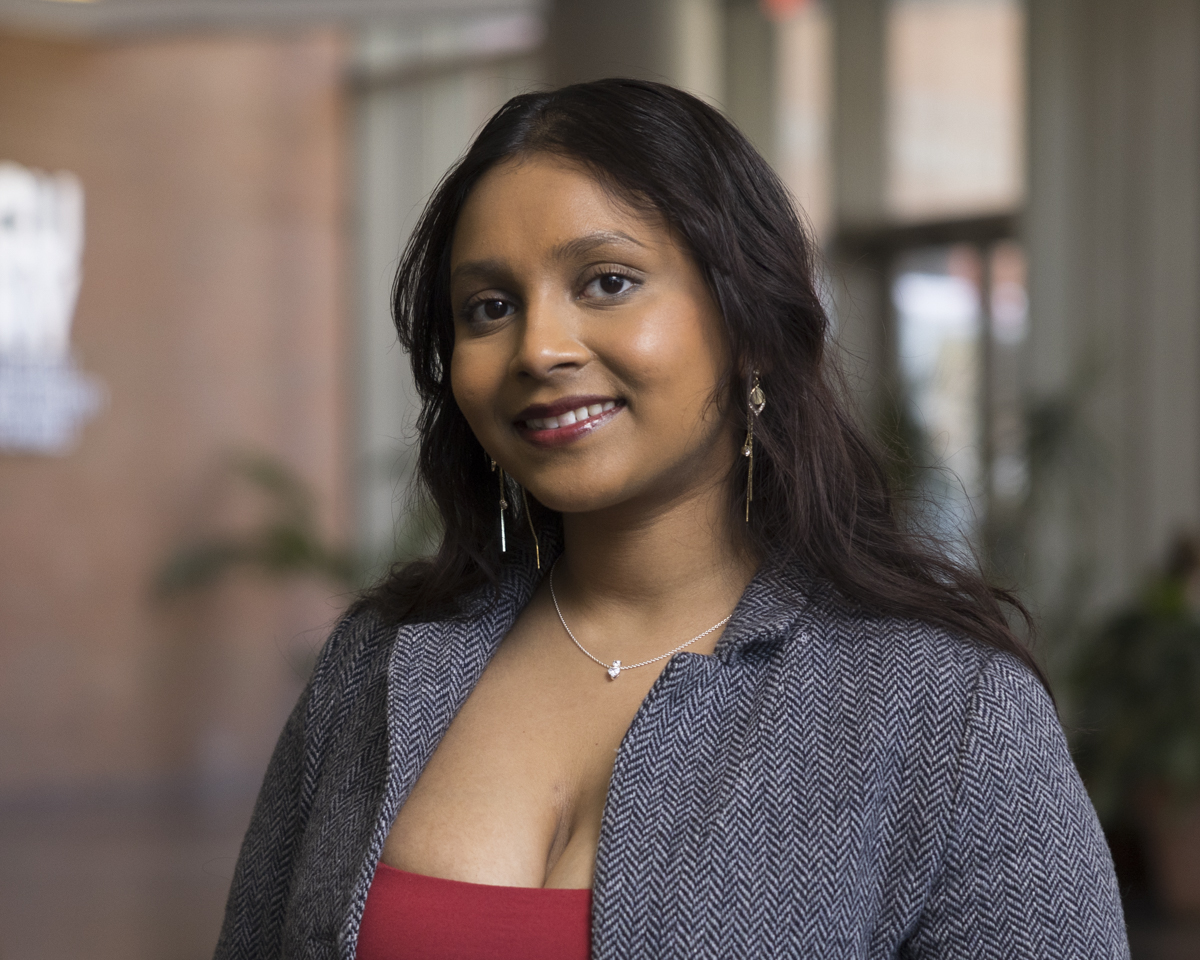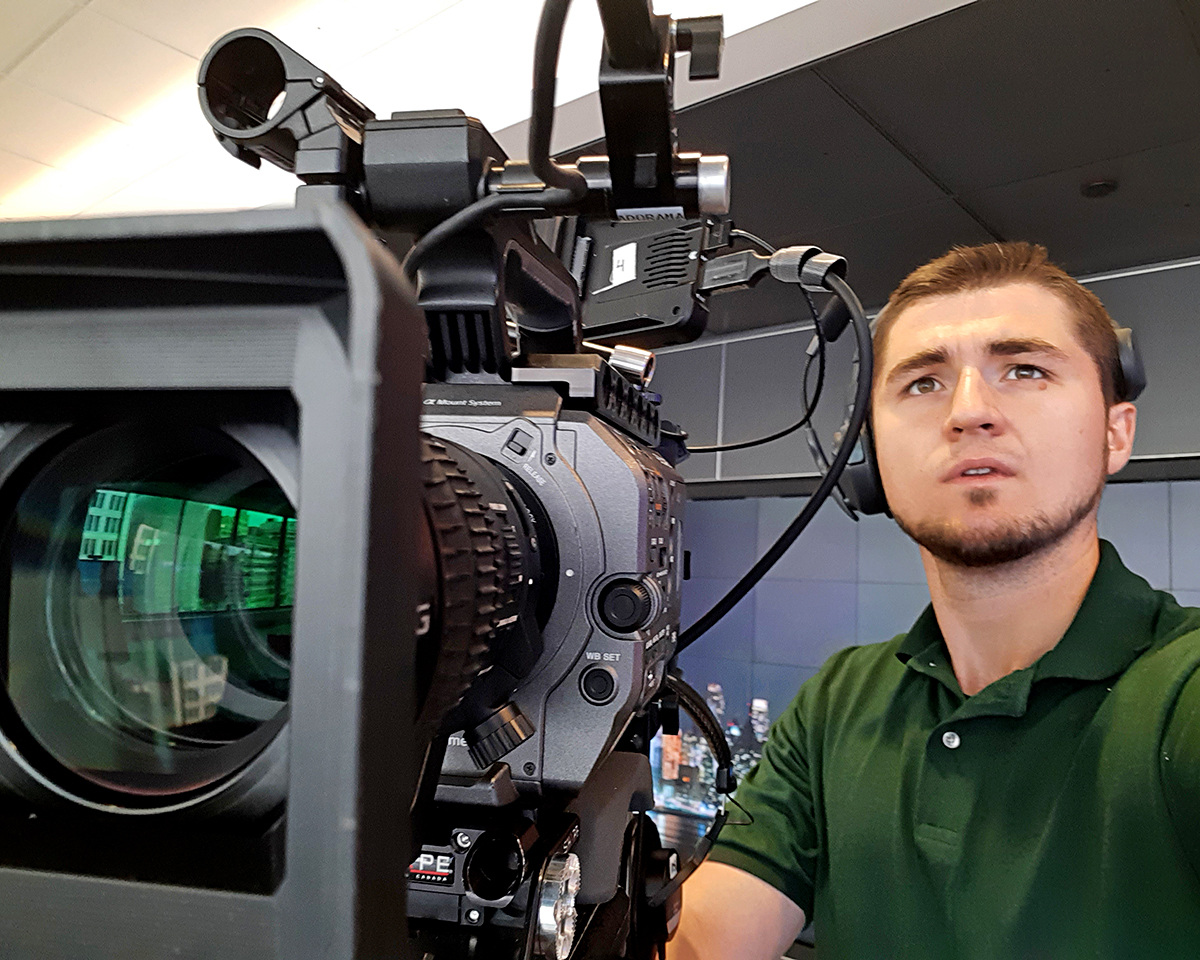Born in Brooklyn in 1985, Hamilton Raymond was sent to Haiti to live with his grandparents as an infant. He returned to the United States when he was 8, attending school in Canarsie. After graduating high school, Raymond went on to earn a bachelor’s degree in sociology at the State University of New York, Buffalo, a master’s in educational psychology at Long Island University, and a doctorate at Walden University. Raymond upended plans to go into health care while on a trip to Guatemala with a nonprofit organization called Nursing Beyond Borders. There he decided that he wanted to help Caribbean men like himself attain higher education.
After nine years at Medgar Evers College as an adviser and assistant director in the admissions office and a coordinator of veterans affairs, Raymond came to Brooklyn College in 2019 as the director of student activities in the Division of Student Affairs and the Student Activities, Involvement, and Leadership (SAIL) Center. Since then, he has published a book, Invisible Men: Disappearance of Black Men in College (2019), and earned a doctorate in higher education, leadership, and management from Walden University.
BC: What prompted you to change your career path in Guatemala?
HR: I went there through Nursing Beyond Borders to help prep patients before they were treated. I was down there for only about two months. It was a great opportunity, but as a Haitian American, I realized that being there was the result of years of cultural pressure to pursue a life as a medical doctor or engineer. Ultimately, I realized that becoming a nurse was not something I wanted for myself; I was only doing it to make others proud. I wanted to speak to the men in my community about bettering the lives of Black people. A career uplifting minorities by sharing resources and knowledge was more in tune with my personal aspirations.
My mom, who raised me as a single parent, instilled in me a work ethic that I am unable to shake, thankfully, so as soon as I came back from Guatemala, I got to work on switching careers and taking the first step toward the education field.
BC: How did you overcome the challenges you faced on the road to higher education?
HR: The most difficult trial for me has been not knowing who my father was while being raised in Flatbush and Canarsie, which were riddled with gang violence and drugs. Still, I believe that challenges are meant to be overcome. I have never used my father’s absence as a crutch but as motivation. I learned to make the right choices, and when I didn’t, I held myself accountable. Not having a male in the home forced me to step up at an early age. It motivates me, even today, as I raise my children in the same urban community where I grew up. I am always looking for ways to be a better father. I refuse to allow what I went through to be perpetuated in this generation and those to come.
BC: You worked in admissions at Medgar Evers College. Tell us how you came to Brooklyn College.
HR: As assistant director of admissions at Medgar Evers, I was able to go into the community and actively encourage students of color. I stayed there for close to a decade, attracting and retaining underserved students—many who were Black immigrants—into the college.
As director of student activities at Brooklyn College, I work with different departments to figure out better practices for retaining students, and ensure they persist to graduation, by involving themselves in clubs, leadership programs, student government and making sure the student experience is a memorable one while at Brooklyn College. I’m constantly making an effort to stay involved by being on committees such as, orientation, commencement, involvement fairs, diversity programming for students, enrollment management, and CUNY-wide committees, like the CUNY Council for Student Life Directors, which I chaired last year, and anything club-related.
BC: And the Student Activities, Involvement, and Leadership Center?
HR: With SAIL I mentor students to become leaders. My own call to leadership is about giving back to my community. We raised $30,000 in the last three years for a food pantry through the CUNY Office of Special Programs and New York City Council Food Insecurity Program.
BC: Has your mission to promote college and higher learning in the Caribbean community changed since coming to Brooklyn College?
HR: While my focus is still primarily on men of color because I feel that’s a population that sorely needs resources, I’ve had the opportunity to work with students from all backgrounds. The mission is still the same: Promote college and higher learning as an avenue for success. I must carry that message to every student I encounter.



